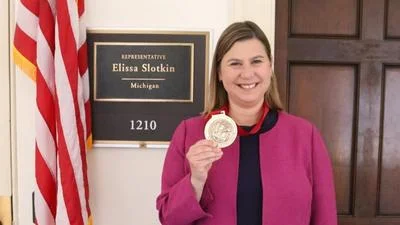Kevin M. Guskiewicz President at Michigan State University | Official website
Kevin M. Guskiewicz President at Michigan State University | Official website
A recent study from Michigan State University’s College of Social Science has revealed a significant decline in individuals' desire to stand out over the past two decades. The research, published in Collabra: Psychology, analyzed data from over a million people between 2000 and 2020, providing evidence-based insights into changes in people's motivation to be unique in today's digital age compared to the early 2000s.
William Chopik, an associate professor at MSU's College of Social Science and leader of the Close Relationship Lab, spearheaded the study. It examined three dimensions of uniqueness: concern about others' reactions, desire to break rules, and willingness to defend beliefs publicly. The findings indicated declines across all three areas, with the most notable being a 6.52% decrease in defending beliefs publicly and a 4.28% increase in concern about others' opinions.
The data suggests that individuals may perceive expressing uniqueness as compromising their ability to fit in or risking ostracization.
“A 6.52% decline is a dramatic population change in as short as 20 years," said William Chopik, lead author of the study and associate professor in the Department of Psychology. "Our data confirms a lot of intuitions people have. It’s not just in their heads that we inhabit punitive spaces. Indeed, people are afraid of drawing too much attention to themselves, potentially because doing so leaves them vulnerable or at risk of being ostracized (or cancelled). This study acknowledges that people have valid fears and concerns about standing out, so much so that they’re less willing to do so.”
Researchers believe this trend has significant societal implications.
“It’s really important to have people willing to go against the grain — say the occasional unpopular thing, challenge groupthink, highlight the need to compromise with people different than us, and not cover up the diversity of opinions and people because they’re too scared to stand out,” said Chopik. “Withholding who we authentically are by trying so hard to blend in can ironically backfire and lead to guilt, anxiety and sometimes even more animosity between people.”






 Alerts Sign-up
Alerts Sign-up